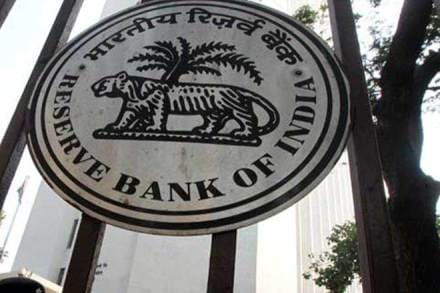The Reserve Bank of India (RBI) on Friday permitted banks in India, which operate International Financial Services Centre Banking Units (IBUs), to participate in the non-deliverable forwards (NDF) market with effect from June 1. Banks may participate through their branches in India, their foreign branches or through their IBUs, RBI said.
Till now, Indian banks were not permitted to participate in this market, although the benefits of their participation in the NDF market have been widely recognised, the central bank stated. NDF markets enable trading of the non-convertible currency, like a rupee, outside the influence of the domestic authorities. For instance, trading in rupee NDF takes place in Singapore, Hong Kong, Dubai, London and New York markets. These contracts are settled in a convertible currency, usually US dollars.
FE had earlier reported that Indian banks had made suggestions to the task force on offshore rupee markets, chaired by former RBI deputy governor Usha Thorat, to allow their overseas units to cater to the rupee NDF market. Although, the task force was not in favour of permitting Indian banks in the offshore rupee markets, it did recognise the importance of IFSC.
In consideration of the risk that participation of Indian banks may improve liquidity in the offshore market and undermine the development of the onshore market, the task force is of the view that Indian banks should not be permitted to deal in offshore rupee market,” the task force had stated. It, however, added that unlike other offshore rupee market venues, IFSC has the potential of providing certain benefits to India and therefore a distinction could be made between the two while examining the case of permitting rupee derivatives to be traded in the IFSC.
Market experts are of the view that participation by Indian banks in NDF market will help increase arbitrage trades, thereby reducing the spread between the onshore rupee forwards as well as the NDF.
MV Srinivasan, vice-president, Mecklai Financial Services, told FE that RBI can intervene in the NDF market to calm down some of the volatility through Indian banks that have overseas units. “This is one way to attack speculation from abroad. More domestic participants in the NDF market means more arbitrage trades and this will help bring down the spread between the onshore and the NDF as well as the intraday volatility, which we have been seeing off late. As far as the rupee movement on Friday is concerned, the strength was more due to the fall in the US dollar in the global markets. Lower volumes are also leading to volatility in the prices,” Srinivasan said. The rupee on Friday closed 30 paise higher at 74.85 against the dollar.
Some experts also believe that there is a flip side to Indian banks participating in the NDF market. Ananth Narayan, professor-finance at SPJIMR, pointed out that the decision will increase the liquidity in the offshore markets and permit Indian banks to participate in the so-called arbitrage trades. “I believe RBI’s intent is if they see too much of volatility in the offshore markets, then banks can help curb some of that. It will help in bringing down the spreads between the onshore and the NDF market. On the flip side though, as NDF volumes and depth increases, the ability of large offshore speculators to take positions will go up. The risk is that we could be feeding the dog that can bite our hand,” Narayan said.
